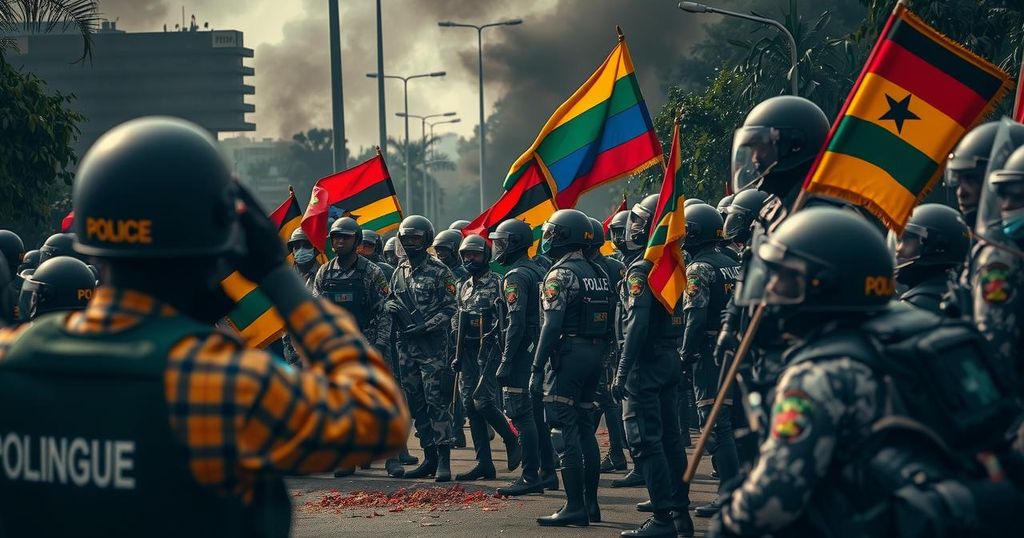Mozambique’s Election Protests: A Nation’s Struggle for Democracy
Mozambique has experienced weeks of protests following the controversial presidential election on October 9, 2024, resulting in violent police crackdowns. The ruling Frelimo party, which has held power for over 50 years, is accused of widespread electoral fraud. The situation has escalated with casualties reported, leading to increased calls for reform from opposition leaders amidst fears of governmental repression.
In the wake of Mozambique’s controversial presidential election held on October 9, 2024, the capital, Maputo, has witnessed significant civil unrest. Thousands of citizens have taken to the streets to protest the result, which has allowed the ruling Front for the Liberation of Mozambique (Frelimo) party to extend its dominion, now reaching over five decades. Accusations of election fraud have spurred widespread dissent, with opposition parties and many citizens vocally disputing the legitimacy of the election results. The situation escalated as police employed tear gas and rubber bullets to disperse demonstrators, reflecting a growing cycle of violence and turmoil. The electoral aftermath has been marked by a tragic loss of life, with conflicting reports indicating that at least 20 individuals have died due to police action, while local groups claim the number exceeds 50. As the protests spread beyond Maputo, opposition leaders have faced grave threats, including the assassination of key figures, which has intensified calls for resistance against the Frelimo regime. In response, authorities have threatened to deploy the army and implemented internet restrictions, further curbing public dissent. Initial reports of electoral irregularities emerged even before the official results were declared, leading opposition figures, including independent candidate Venancio Mondlane, to label the polls fraudulent. The European Union noted discrepancies in the conduct of the election, although the Constitutional Council of Mozambique is currently investigating these claims. As the unrest continues, protests have taken on a life of their own, with citizens venting their longstanding frustrations against a political system they believe has betrayed them for far too long. Among these protests, actions have included the desecration of statues symbolizing the ruling authority, representing a significant break from traditional political decorum in the country. The political landscape of Mozambique has been shaped by decades of turbulent history, including a civil war that ended in 1992 and ongoing conflicts fueled by economic disparities and social disillusionment. Young people, in particular, have found a voice in the current unrest, rallying around Mondlane as a symbol of change, aiming to challenge Frelimo’s long-standing authority. The situation remains precarious, with international implications unfolding as neighboring countries react notably, including border closures and heightened security measures.
Mozambique, a nation with deep historical scars due to colonial rule and civil strife, has been undergoing a significant political transition since its independence from Portugal in 1975. The recent presidential election, which solidified the power of the Frelimo party, has been met with allegations of electoral malpractice, fostering tensions that have erupted into widespread protests. Amidst a challenging socio-economic backdrop, citizens are rallying against perceived corruption and disenfranchisement, advocating for reforms that address their grievances against the ruling elite. The political climate is further complicated by violent clashes between protesters and security forces, raising concerns about human rights abuses and the stability of the nation.
The fallout from Mozambique’s presidential election is manifesting in a significant civil uprising, marking a pivotal moment in the country’s political history. Accusations of electoral fraud and government suppressive tactics have fueled public discontent, leading to protests met with violent police crackdowns. As the opposition calls for change and accountability, the future of governance in Mozambique hangs in the balance. The potential for change is palpable, driven by a younger generation disillusioned by decades of Frelimo’s rule.
Original Source: apnews.com




Post Comment